Which of the following is least reactive towards SN1?
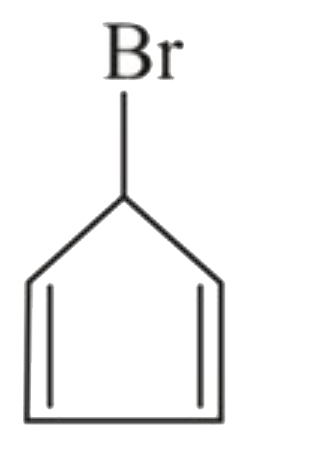
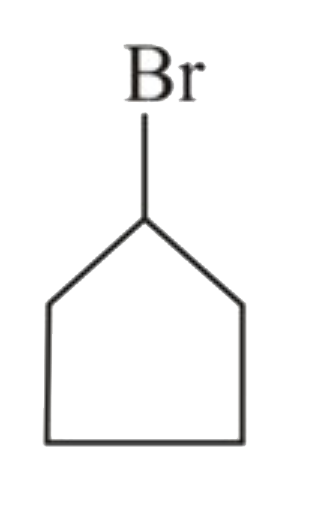
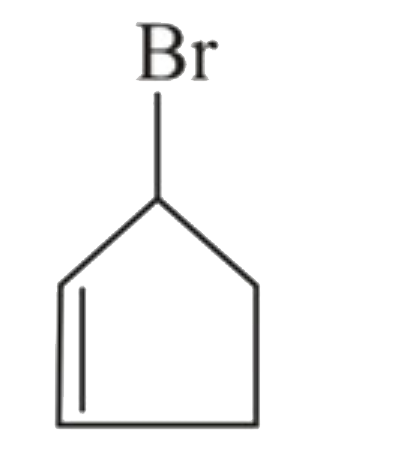
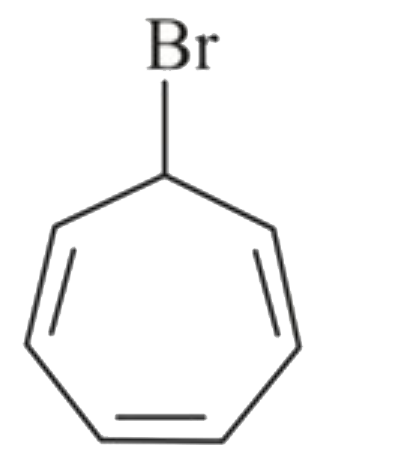
The correct Answer is:A
To determine which of the given compounds is least reactive towards the SN1 reaction, we need to analyze the stability of the carbocations formed during the reaction. The SN1 mechanism involves two steps: the formation of a carbocation and then the attack of a nucleophile on that carbocation. The rate of the reaction is dependent on the stability of the carbocation formed in the first step.
1. Understand the SN1 Mechanism:
- The SN1 reaction proceeds through the formation of a carbocation intermediate. The stability of this carbocation is crucial for the reactivity of the compound towards the SN1 reaction.
2. Identify the Carbocations:
- For each of the given options, we need to identify the carbocation that would form when the alkyl halide undergoes ionization.
3. Evaluate Carbocation Stability:
- Carbocations can be classified based on their stability:
- Tertiary (3°) carbocations are the most stable.
- Secondary (2°) carbocations are less stable than tertiary but more stable than primary (1°).
- Primary (1°) carbocations are less stable than secondary.
- Methyl carbocations are the least stable.
- Aromatic and allylic carbocations are generally more stable due to resonance.
- Anti-aromatic carbocations are the least stable due to their structure.
4. Analyze the Given Options:
- For each option, determine the type of carbocation formed:
- Option 1: Forms an anti-aromatic carbocation (least stable).
- Option 2: Forms a secondary carbocation.
- Option 3: Forms an allylic carbocation (more stable).
- Option 4: Forms a tertiary carbocation (most stable).
5. Determine the Least Reactive Compound:
- Since the least stable carbocation corresponds to the least reactive compound towards the SN1 reaction, we conclude that the compound forming the anti-aromatic carbocation (Option 1) is the least reactive.
Final Answer:
The compound that is least reactive towards SN1 is Option 1 (the one forming an anti-aromatic carbocation).
- The SN1 reaction proceeds through the formation of a carbocation intermediate. The stability of this carbocation is crucial for the reactivity of the compound towards the SN1 reaction.
- For each of the given options, we need to identify the carbocation that would form when the alkyl halide undergoes ionization.
- Carbocations can be classified based on their stability:
- Tertiary (3°) carbocations are the most stable.
- Secondary (2°) carbocations are less stable than tertiary but more stable than primary (1°).
- Primary (1°) carbocations are less stable than secondary.
- Methyl carbocations are the least stable.
- Aromatic and allylic carbocations are generally more stable due to resonance.
- Anti-aromatic carbocations are the least stable due to their structure.
- For each option, determine the type of carbocation formed:
- Option 1: Forms an anti-aromatic carbocation (least stable).
- Option 2: Forms a secondary carbocation.
- Option 3: Forms an allylic carbocation (more stable).
- Option 4: Forms a tertiary carbocation (most stable).
- Since the least stable carbocation corresponds to the least reactive compound towards the SN1 reaction, we conclude that the compound forming the anti-aromatic carbocation (Option 1) is the least reactive.
The compound that is least reactive towards SN1 is Option 1 (the one forming an anti-aromatic carbocation).
Similar Questions
Knowledge Check
Which of the following is most reactive towardSN2 reaction ?
A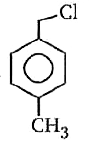 B
B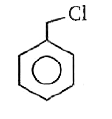 C
C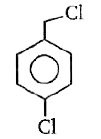 D
D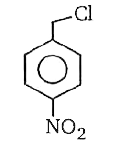
Which of the following is most reactive towardSN2 reaction ?
ACH2=CH−CH2−ClBPh−CH2−ClC DPh−C∣∣O−CH2−Cl
DPh−C∣∣O−CH2−ClWhich of the following alkenes is least reactive towards anionic polymerisation ?
Aa. CH2=CHCH3Bb. CH2=CF2Cc. CH2=CHCNDd. CH2=CHC6H5
Which of the following is least reactive towards nucleo- philic substitution?
View SolutionWhich of the following is the most reactive towards electrophilic substitution?
View SolutionWhich of the following is the most reactive towards ring nitration ?
View SolutionWhich one of the following is most reactive towards water?
View SolutionWhich of the following is most reactive towards aqueous NaOH?
View Solution
